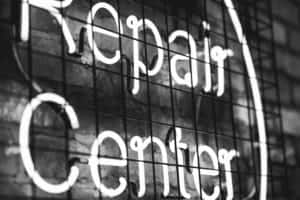
You’ve probably noticed that elimination diets are all the rage these days. From single-ingredient eliminations (like gluten free) to more restrictive elimination diets (such as Keto, Raw Food, Vegan, Gluten Free and Low Carb Diets), there are dozens of “free-from” diets that people choose to follow for a variety of reasons.
Skipping out on certain foods in the name of weight loss is nothing new—but the latest trend in elimination diets has little, if anything, to do with weight loss. Now, throngs of health-conscious eaters are turning to elimination diets in an effort to cure everything. From headaches and fatigue to skin irritations and digestive woes.
But if you’re like us, and your health has been declining ever since you jumped on the elimination bandwagon…
We don’t blame anyone for going on a restricted diet. We are sure most of you had a good reason to fall for them. Like we did. We had severe health problems and no medical or alternative doctor could help us or took us seriously. We lived in our restrictive health-nut bubble for quite some time. Just we reacted as we started to feel worth on those diets and used common sense, that this can’t be right.
The latest trend in health appears to be watching what you don‘t eat
Not so long time ago we saw a video of a woman, she is kind of know in the raw food movement here in Germany, where she was talking about that she is getting sick the next day after eating raw food comfort foods (like raw cake, stuff that has more ingredients than just one). She claimed that she cannot eat these things anymore, because she became so clean inside. So food combinations, even the praised raw food clean stuff is all of a sudden, bad.
That´s why we have this website for you. We want to show you, that there is a way of normal eating AND getting your health back.
If you’ve lived long enough, you’ve seen the trends come and go in the dieting world. One minute fat is bad and the next it’s carbs or fruit or some other villain who is to blame for poor health.
Elimination diets are no different – it’s a new trend in the dieting world and people are hailing its benefits for solving all kinds of ailments and conditions. Some day in the near future, we will look back at elimination diets with the same level of regret and caution as we now do about the low-fat craze of the nineties.
And just in case you haven’t yet heard of them… Elimination diets are extremely restrictive dietary protocols intended to help the user determine food allergies or intolerance s. That’s the original intention behind them—but now, of course, they’ve been co-opted by the weight loss industry and so-called health gurus peddling potentially dangerous protocols never intended to be DIY pursuits.
Dietary eliminations are often based on the premise that there are ingredients or compounds in certain foods – such as lactose in dairy, gluten in wheat or fermentable fibers in beans – that are poorly tolerated digestively. In other cases, people complain that certain foods affect their energy levels adversely – often high-sugar or starchy carbohydrate foods. Removing such foods from the diet, by extension, is intended to result in an improvement in overall well-being. But when eliminating entire food groups from one’s diet, the texture or macro nutrient composition of the diet may become heavily skewed in a way that produces unintended digestive consequences.
Low-carb diets for example are extremely hard to sustain because people look at cutting carbs as restricting themselves. And what do you want when someone tells you that you can’t have something? The exact thing you can’t have.
So behaviorally, it’s not realistic to think that someone could stick to something like severely limiting carbs long-term.
Sadly most of the time people can’t find themselves in the promised health state. So many people start to think that their restricted diet is not restricted enough – that there must be something remaining in their shrinking list of food options that is upsetting their digestive system. In other words, we ascribe symptoms to what we’re eating, rather than considering that our symptoms could result from something we’re not eating.

From a digestive health standpoint, there is a case to be made for consuming as diverse a diet as you can tolerate – one that includes both raw food and cooked; vegetables that derive from a plant’s roots as well as from its leaves or flowers; an array of fruits, nuts and seeds; cereal grains as well as legumes; and even some animal-derived proteins.
In addition, elimination diets can actually produce the very symptoms and experiences in your body that you are trying to avoid on a physiological level. You might experience brain fog or fatigue and attribute those symptoms to a certain allergen, but those symptoms might actually be caused by under eating. You might perceive a reaction to a particular food but you could actually be experiencing symptoms of hunger, stress and inflammation from under-nourishment.
You should learn again to listen to your somatic intelligence. Somatic intelligence is our body’s ability to show what it needs and doesn’t need through lust, dislike and digestibility. Everyone needs sugars for example, to keep the brain running and to supply organs and muscles. When a person is hypoglycemic, he gets a craving for carbs. He doesn’t have to call a nutritionist or check the encyclopedia, but his body sends a clear signal, namely craving for carbs.
But many people feel guilty when they give in to their cravings – You shouldn’t have that!
If something doesn’t work for you, your body will tell you. In the form of our needs we are all very different. The optimal diet therefore is the ones a person enjoys, likes and tolerates.
Normal eating is intuitive. Intuitive eaters pick their foods based on internal signals like hunger, fullness, satisfaction and body respect, rather than external cues like food rules or restrictions, or a sense of responsibility to Instagram followers. Intuitive eaters give themselves permission to eat whatever they want, without any food guilt. They trust their bodies to tell them when, what and how much to eat. They can tell when they feel like eating vegetables and when they want to have dessert, and they don’t judge themselves for either decision.
However, people following self-made elimination-style diets on their own – especially those that exclude multiple ingredients – should think twice about the potential consequences. The best way to get all the vitamins, minerals, and other ingredients your body needs to function at its best is to eat a variety of whole foods, and restrictive diets, by definition, interfere with your ability to do that.
Give these downsides some real consideration before making sweeping cuts to your diet, particularly if these changes are completely voluntary, not a medical necessity.



Get notified about new articles
This website and its blog provides general information and discussions about health and related subjects. The information and other content provided on this Site and blog, or in any linked materials, are not intended and should not be construed as medical advice, nor is the information a substitute for professional medical expertise or treatment.
If you or any other person has a medical concern, you should consult with your health care provider or seek other professional medical treatment. Never disregard professional medical advice or delay in seeking it because of something that have read on this Site or its blog or in any linked materials. If you think you may have a medical emergency, call your doctor or emergency services immediately.
The opinions and views expressed on this website and its blog have no relation to those of any academic, hospital, health practice or other institution.
| Cookie | Type | Duration | Description |
|---|---|---|---|
| Cloudflair | 1 | 11 months | The cookie is set by Cloudflare. The cookie is used to identify individual clients behind a shared IP address d apply security settings on a per-client basis. It does not correspond to any user ID on the web application and does not store any personally identifiable information. |
| cookielawinfo-checkbox-analytics | 0 | 11 months | This cookie is set by GDPR Cookie Consent plugin. The cookie is used to store the user consent for the cookies in the category "Analytics". |
| cookielawinfo-checkbox-functional | 0 | 11 months | The cookie is set by GDPR cookie consent to record the user consent for the cookies in the category "Functional". |
| cookielawinfo-checkbox-necessary | 1 | 1 year | This cookie is set by GDPR Cookie Consent plugin. The cookies is used to store the user consent for the cookies in the category "Necessary". |
| cookielawinfo-checkbox-others | 0 | 11 months | This cookie is set by GDPR Cookie Consent plugin. The cookie is used to store the user consent for the cookies in the category "Other. |
| cookielawinfo-checkbox-performance | 0 | 11 months | This cookie is set by GDPR Cookie Consent plugin. The cookie is used to store the user consent for the cookies in the category "Performance". |
| cookielawinfo-checkbox-preferences | 1 | 1 year | This cookie is set by GDPR Cookie Consent plugin. The cookie is used to store the user consent for the cookies in the category "Preferences". |
| Disclaimer-Cookie-EN | persistent | 2 month | This cookie is set by iheal.me disclaimer popup. It stores you have accepted the iheal.me disclaimer. It does not store any personal data. |
| Cookie | Type | Duration | Description |
|---|---|---|---|
| locale | persistent | 4 years | The cookie identify your location / browser language and switch to your preferred language, if it's exists. Currently, we provide this page in English and German. |
| pll_language | 1 | 1 year | This cookie is set by Polylang plugin for WordPress powered websites. The cookie stores the language code of the last browsed page. |
| YSC | 1 | session | This cookies is set by Youtube and is used to track the views of embedded videos. |
| Cookie | Type | Duration | Description |
|---|---|---|---|
| __Host-js_csrf | persistent | 3 years | cookie provided by Dropbox for statistical purpose. Statistic cookies help website owners to understand how visitors interact with websites by collecting and reporting information anonymously. |
| gvc | persistent | 4 years | cookie provided by Dropbox for statistical purpose. Statistic cookies help website owners to understand how visitors interact with websites by collecting and reporting information anonymously. |
| T | persistent | 3 years | cookie provided by Dropbox for statistical purpose. Statistic cookies help website owners to understand how visitors interact with websites by collecting and reporting information anonymously. |